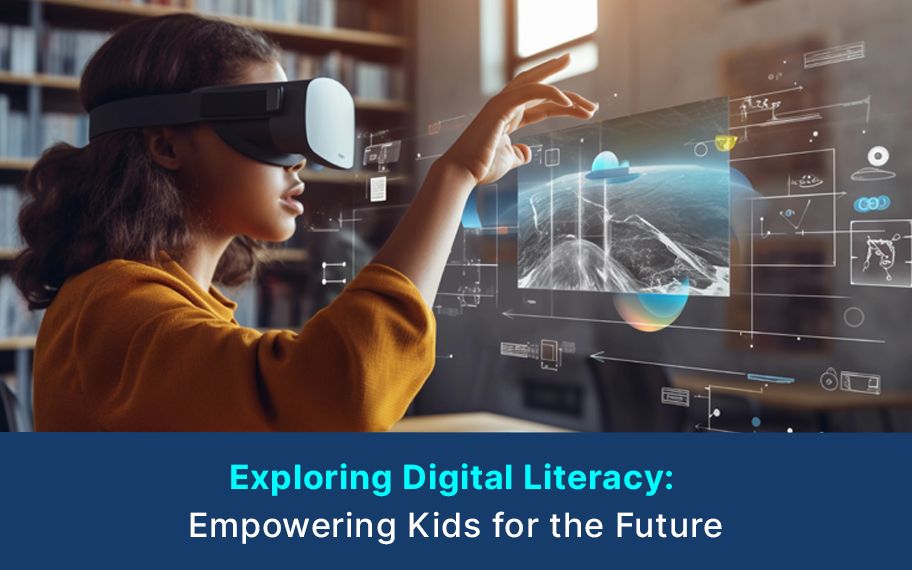In our rapidly evolving digital age, being digitally literate is no longer a matter of choice; it's necessary. "Digital literacy" refers to the ability to navigate, understand, and effectively utilise digital technologies, including computers, smartphones, and the internet. While digital literacy is crucial for people of all ages, empowering kids with this skill is paramount. In this blog, we'll delve into the significance of digital literacy and how it's shaping our children's future.
What Is Digital Literacy?
If we look at the literal definition of what is digital literacy, it could be understood as the ability to understand, utilize, evaluate, and communicate information safely and appropriately via various digital communication mediums. Digital literacy is not just a medium of communication in today’s time, it’s also a source of employment and empowering kids.
Understanding Digital Literacy
Digital literacy encompasses a broad spectrum of skills and knowledge, including:
- Digital Communication: Using emails, social media, and other digital platforms to communicate effectively.
- Internet Safety: Knowledge about online privacy, cyberbullying, and responsible internet behaviour.
- Information Literacy: The capacity to find, evaluate, and use information from digital sources, discerning between reliable and unreliable content.
- Basic Computer Skills: Proficiency in using software, file management, and troubleshooting common issues.
- Coding and Programming: Understanding the fundamentals of coding, fostering problem-solving abilities.
- Media Literacy: Critical analysis of digital media, recognizing biases and misinformation.
Empowering Kids for the Future
Empowering kids with digital literacy is akin to giving them the keys to a vast realm of knowledge, creativity, and opportunities. Here's how it prepares them for the future:
- Enhanced Learning: Digital literacy helps kids access many educational resources online. They can explore interactive learning platforms, watch educational videos, and engage with virtual classrooms, fostering a love for continuous learning.
- Creativity Unleashed: Through digital tools, children can unleash their creativity. Whether creating digital art, writing blogs, or editing videos, the digital world provides a canvas for their imagination.
- Global Awareness: The internet connects children with a worldwide community. It creates global awareness and cultural sensitivity, breaking down barriers and encouraging empathy.
- Problem-Solving Skills: Learning to code or troubleshoot digital issues cultivates problem-solving skills, a critical asset in the future job market.
- Digital Citizenship: Teaching kids about online ethics and safety empowers them to navigate the digital world responsibly, guarding against cyberbullying, identity theft, and misinformation.
- Career Opportunities: As the job market evolves, digital literacy is a fundamental requirement. Equipping kids with these skills opens up a broader range of career opportunities.
- Adaptability: The ability to adapt to new digital technologies is crucial. Empowered kids can quickly embrace new tools and systems as they emerge.
- Improved Online Equity: Digital literacy helps in empowering kids to get equal opportunity regardless of their background to access and utilize digital technologies. It’s the technology that bridges the gap among students coming from different, backgrounds, cultures, countries and languages.
- Entertainment and Enjoyment: Children love to engage with entertaining content, through various digital mediums they get to interact with fun yet educational topics, ultimately empowering kids to gain and grow using online resources.
- Self Confidence: Being able to understand and utilize various digital technologies boosts the confidence of students. They feel equal to other children who are using digital tools.
Learn more about Teachmint plans here.




